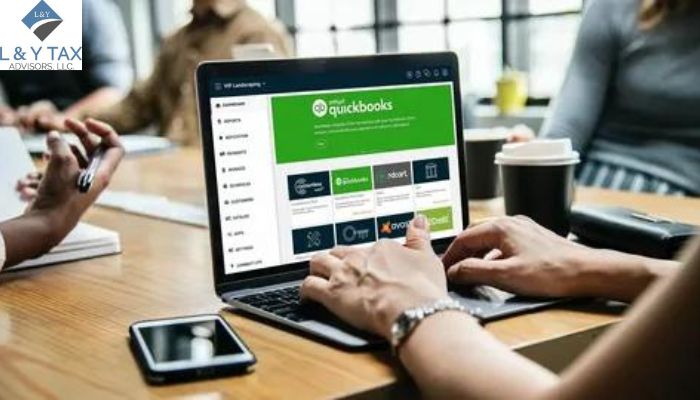
Full Charge Bookkeeping
Hiring a full charge bookkeeping professional is essential to sustain accurate accounting records for the overall growth of your company and it is necessary to elevate your brand name in the global marketplace. And if you’re wondering, ‘What is full charge bookkeeping?’ and how it is different from bookkeeping, the term ‘full charge’ refers to the person who is solely responsible to deal with accounting as well as bookkeeping of an organization, typically small and medium-sized businesses (SMBs).
In addition to the typical duties which include the maintenance of the business ledger, full charge bookkeepers of your company prepare financial statements and taxation returns. They also record complex transactions and process timesheets and payroll. But in larger firms, these duties are performed by accountants and controllers.
The Extent of Access of Full Charge Bookkeepers
As compared to bookkeepers, full charge bookkeeping consultants are meant to provide the reports of their work directly to the supreme authorities of your company, such as senior managers or presidents. Supervising the accounting staff of pen-pushers is also their responsibility along with contacting relevant professionals working exteriorly for your company such as a certified public accountant (CPA).
What Does a Full Charge Bookkeeper Do?
A full charge bookkeeper of SMBs is a versatile employee who works for bookkeeping, and accountancy, and performs the duties of a controller, along with the following tasks:
- Management of accounts payable and accounts receivable
- Reconciliation of cash, bank accounts, and revenues
- Maintenance of an accurate general ledger and making required adjustments
- Creation of general entries for all accounts, including fixed assets
- Surveillance of the cash flow of your business
- Issue the invoices to and collection of payments from the customers
- Preparation of monthly and quarterly financial statements
- Preparation of tax returns
- Management and remittance of payroll, sales, and income
- Processing the timesheets of employees
- Supervision of accounting staff such as payroll clerks, billing and payable pen-pushers
- Collection of relevant information to serve the auditing team
QuickBooks & Bookkeepers
The computation, organization, and categorization of numeric data is what bookkeepers do.

If you’re thinking, is QuickBooks desktop being phased out, the answer is no because many full-charge bookkeepers use QuickBooks Live Bookkeeping, which is a desktop-friendly accounting software that interlinks small businesses with trustworthy and certified professionals.
For you to stay focused on your business, your bookkeepers take the lead to run essential reports. Unfortunately, the drawback of other versions, such as the disadvantages of QuickBooks Online cannot be neglected, particularly in the case of large business companies.
Typically, the job titles used for QuickBooks Bookkeepers are enormous that include full charge bookkeepers, accounting associates, office bookkeepers, accounts payable coordinators, accounting clerks, and accounts payable specialists.
You can also read here about the benefits of QuickBook.
Educational Requirements for Full Charge Bookkeeping
The qualification requirements to become a full charge bookkeeper are necessary to consider. However, there are no certain limitations to starting your practice because, unlike accounting, a professional degree isn’t required to work as a bookkeeper.
1. Diploma & Certifications
A high school diploma or equivalent certifications and some basic bookkeeping knowledge are essential. Although, a set of certain skills are important such as mathematical abilities and calculation, data entry, proficiency in computer usage, effective communication skills, and attention to detail.
If you wish to be a full-time bookkeeper, obtaining appropriate education such as an associate level or bachelor’s degree in accounting, business administration, business mathematics, computers, or any other relevant fields is paramount to step in the practicality of finances.
2. Bookkeeping as a Career
Career growth will solely rely on your interests in this industry, growth progress and the number of years of experience invested in it. Some options to study minor courses during your degree are payroll accounting, economics, business law, and taxation procedures.
3. Certified Bookkeeper (CB)
If you wish to excel above all, it is recommended to go the extra mile and acquire additional knowledge by gaining a certified bookkeeper (CB) designation from the regulatory authorities of your state.
In the US, the American Institute of Professional Bookkeepers or the National Association of Certified Public Bookkeepers provide such designations. To get one, you need to have at least two years of working experience in the respective field and pass the examination.
Average Income
Even though the income of full-charge bookkeepers is not as competent as that of accountants or taxation experts, they earn quite more than a regular bookkeeper. Various estimates demonstrate that the average salary of full-charge bookkeepers ranges from $15.04 to $30.00 per hour. This range is subject to modifications based on your qualifications, additional skills and certifications, clean record of employment history, and the number of years of experience in the field.
Full charge bookkeeper vs bookkeeper
Full charge bookkeepers differ from regular bookkeepers in their scope and depth of responsibilities in accounting and financial management:
Bookkeeping Responsibilities: Bookkeepers’ primary duties involve recording financial transactions, maintaining accurate ledgers and organizing financial data.
Tasks: Duties include data entry, reconciling accounts, processing invoices, managing payable/receivable balances, and creating basic financial reports.
Focus: Bookkeepers maintain essential daily financial records without engaging in high-level analysis or decision-making processes.
How do I become a full charge bookkeeper:
To become a full-charge bookkeeper, first obtain your high school diploma before seeking relevant accounting or finance education. In tandem with that education, develop strong bookkeeping skills while gaining practical experience through internships or entry-level positions. Consider attaining certifications such as Certified Bookkeeper (CB) or QuickBooks Certifications. Expand your proficiency in bookkeeping software while building communication skills while seeking supervisory roles to oversee more extensive financial responsibilities. Stay abreast of industry changes while networking with professionals and continuing professional development to further your financial management career goals.
Responsibilities: Full-charge bookkeepers have more encompassing duties than just record keeping alone and can often become involved with all stages of accounting processes.
Tasks Performed By Full Charge Bookkeepers: In addition to traditional bookkeeping duties, full charge bookkeepers typically oversee payroll management, prepare financial statements and bank reconciliations, and oversee budgeting processes.
Focus: Full charge bookkeepers tend to assume more managerial responsibilities and may help shape strategic financial planning strategies for their respective businesses.
The person in an organization who is employed to perform bookkeeping functions is usually called the bookkeeper. They typically write the daybooks (which contain records of sales, purchases, receipts, and payments), and document each financial transaction, whether cash or credit, into the correct daybook—that is, petty cash book, suppliers ledger, customer ledger, etc.—and the general ledger.
Summary: While bookkeepers specialize in recording and organizing financial transactions, full-charge bookkeepers take on more expansive duties that often encompass additional financial management and higher-level responsibilities. Which role you decide upon depends upon how complex a company’s needs are and any expertise needed to administer its finances effectively.
Final Words
Depending on the size of your business, whether it is small or large, and the way it is structured, decide accordingly if you need a regular bookkeeper or a full charge bookkeeping professional, whose roles shouldn’t be confused with that of an in-house bookkeeper who works particularly as in internal employee rather than an outsourced hire. If your business is scaling and the financial management is difficult to handle, you would benefit from it. Moreover, a bookkeeper with certain certifications will help you with business transactions, managing accounts payable and receivable and performing the basic duties of a taxation expert.
Read More:
property taxes on new construction

